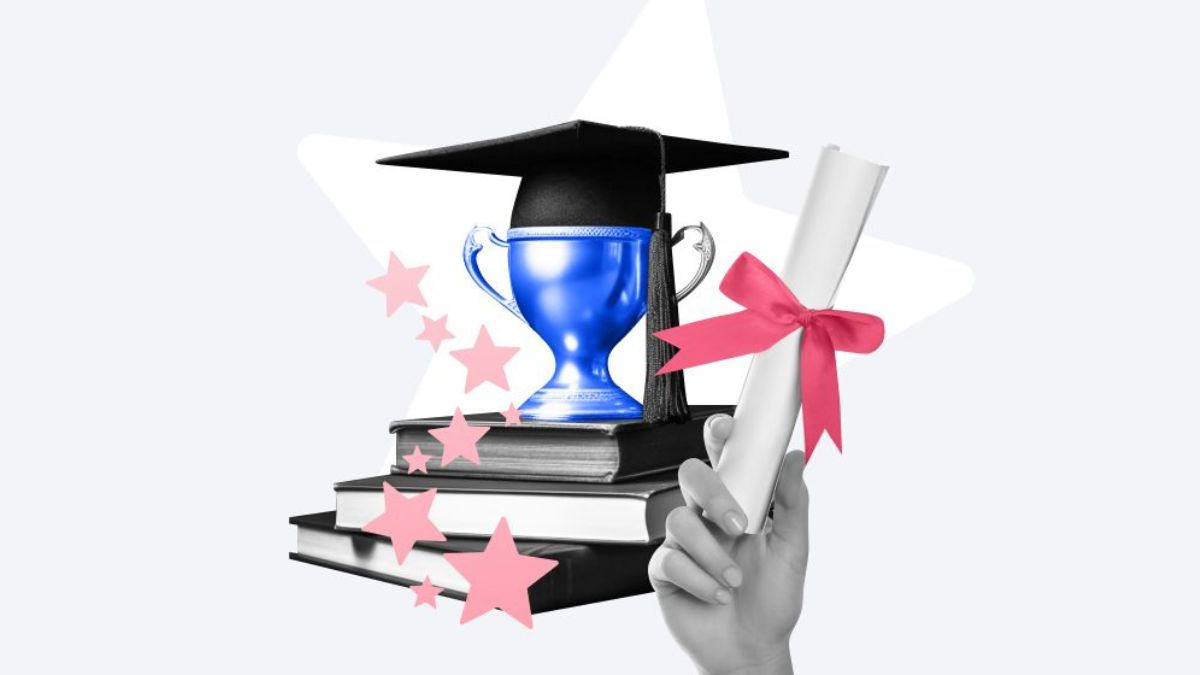EDUCATION
Advanced Research Strategies for Graduate Students

It’s 2:00 AM. You’re staring at your computer screen, surrounded by scattered journal articles and empty coffee cups. Your thesis proposal deadline looms, but your research questions remain frustratingly vague. Sound familiar?
Graduate research demands skills far beyond what most undergraduate programs teach. The expectations shift dramatically—suddenly, you’re not just consuming knowledge but creating it. This cognitive leap catches many brilliant students off guard.
Research shows that 67% of graduate students struggle with research design and methodology during their first year. Most eventually find their footing through experimentation, mentorship, and resources. Many turn to specialized support networks, including Top thesis writing companies that provide methodological guidance, literature review assistance, and structural frameworks to clarify their research approach.
Reframing Literature Reviews as Conversations
Traditional literature reviews often devolve into passive summaries. Effective graduate researchers instead approach them as intellectual dialogues.
Read academic papers with specific questions: What assumptions does this author challenge? Where do these findings contradict Smith’s work from 2021? This active engagement transforms bland summaries into rich analytical frameworks.
Create synthesis matrices rather than linear notes. Plot key authors across the top of a spreadsheet and main concepts down the side. Fill cells with each author’s position on each concept, making patterns and gaps instantly visible.
Quick Win: Start literature mapping with just three seminal papers in your field. Draw literal connection lines between their key claims on a whiteboard to visualize the scholarly conversation.
Research Question Development Techniques
Vague research questions doom projects before they begin. Strong questions strike the balance between specificity and significance.
Apply the FINER criteria to test your research questions. They should be:
- Feasible (answerable with available resources)
- Interesting (to you and your field)
- Novel (adding something new)
- Ethical
- Relevant (to current discourse).
Try the funnel method—start with broad questions, then systematically narrow through short brainstorming sessions. When you think you’ve found your question, perform the “so what” test: if you answer this question perfectly, what meaningful contribution results?
Methodology Selection Beyond the Obvious
Many graduate students default to methodologies common in their department rather than those best suited to their questions. This misalignment compromises research quality from the start.
Map your epistemological assumptions before choosing methods. Are you seeking objective measurements, subjective experiences, or social constructions? This philosophical foundation helps eliminate incompatible methods immediately.
Mixed methods approaches often provide richer insights than single-method designs but require careful integration planning. Determine whether your quantitative and qualitative components will serve confirmatory, exploratory, or complementary functions.
Method Selection Tip: Create a simple matrix rating potential methodologies against your specific research question criteria. Score each method on practical feasibility, theoretical compatibility, and analytical power to make decisions transparent.
Data Management Systems That Scale
Graduate research generates exponentially more data than undergraduate projects. Without robust management systems, critical information gets lost.
Implement hierarchical folder structures with standardized naming conventions from day one. Include date stamps (YYYY-MM-DD format) to maintain chronology. Create separate directories for raw data, processed data, analysis scripts, and outputs.
Cloud-based version control systems like GitHub aren’t just for programmers—they track changes to all document types and prevent catastrophic losses. The initial learning curve pays dividends when you need to recover previous versions or collaborate with advisors.
Writing Productivity Techniques for Long-Form Research
Graduate writing differs fundamentally from undergraduate assignments. The sheer volume and complexity demand specialized approaches.
Try the 3-3-3 method: write for three hours, three days per week, producing three pages minimum each session. This creates sustainable momentum without burnout. Neurological research shows that consistent brief writing sessions produce better quality than infrequent marathons.
Many successful researchers use structured procrastination—schedule two different writing tasks each day. When avoiding one, you’ll naturally gravitate toward the other, maintaining productivity regardless of fluctuating motivation.
Strategic Mentor Relationships
Your advisor relationship significantly impacts research success, yet few students approach it strategically.
Create communication contracts establishing expectations for meeting frequency, draft review timelines, and feedback specificity. This prevents misalignments that derail progress.
Develop complementary mentorship networks beyond your primary advisor. Subject specialists, methodology experts, and peers at similar stages provide balanced support that your advisor alone cannot offer.
Advisory Relationship Strategy: After committee meetings, send concise email summaries documenting decisions and next steps. This creates accountability and prevents misunderstandings about project direction.
The Research Efficiency Paradox
Graduate research success often hinges not on working harder but on strategically constraining scope. The most elegant theses answer focused questions thoroughly rather than addressing sprawling topics superficially.
Apply the 80/20 principle ruthlessly. Identify which 20% of your potential research activities will yield 80% of your meaningful results. This concentration of effort transforms overwhelming projects into manageable endeavors.
Remember that perfect research exists only in theory. Successful graduate students produce excellent—not ideal—work, allowing them to actually finish their degrees and contribute to their fields.
EDUCATION
Edivawer vs. Traditional Learning Methods: A Comparative Analysis

Education is evolving rapidly, and with it comes a plethora of learning methods. Among the many options available today, Edivawer stands out as a modern alternative to traditional learning techniques. But how do these two approaches stack up against each other?
Edivawer offers flexibility and accessibility that appeal to many learners seeking personalized educational experiences. On the other hand, traditional methods have long been trusted for their structured environments and face-to-face interactions. As we delve deeper into this comparative analysis, we’ll explore the advantages and disadvantages of both Edivawer and conventional learning.
Whether you’re a student weighing your options or an educator considering new teaching strategies, understanding these differences can help you make informed decisions about your learning journey. Let’s dive in!
The Advantages and Disadvantages of Edivawer
Edivawer offers a modern approach to education that appeals to many learners. Its flexibility is one of its strongest advantages. Students can access materials anytime, allowing for personalized pacing and study schedules.
Another benefit is the variety of resources available. Edivawer incorporates multimedia elements like videos and interactive quizzes, making learning more engaging compared to traditional methods.
However, there are some drawbacks. Not all students thrive in an online environment. The lack of face-to-face interaction may lead some learners to feel isolated or disconnected from their peers and instructors.
Additionally, self-discipline plays a significant role in success with Edivawer. Some individuals may struggle with motivation without the structure found in traditional classrooms.
Balancing these advantages and disadvantages helps potential users make informed choices about their educational paths within this innovative platform.
The Advantages and Disadvantages of Traditional Learning Methods
Traditional learning methods have been the cornerstone of education for decades. They offer a structured environment that many students thrive in. Face-to-face interactions with teachers and peers can foster strong relationships, enhancing collaboration.
However, these methods also come with their downsides. Rigid schedules may not suit everyone’s learning pace or style. Some students find it difficult to engage in large classrooms where individual attention is scarce.
Additionally, traditional settings often rely on standardized testing, which may not accurately reflect a student’s knowledge or skills. This approach can create unnecessary pressure and anxiety.
Moreover, accessibility issues arise as commuting can be challenging for some learners. Not all resources are available equally to every student, leading to disparities in educational experiences.
While traditional learning has its merits, it’s essential to recognize its limitations alongside the advantages it offers.
Cost Comparison between Edivawer and Traditional Learning Methods
When evaluating the cost of education, Edivawer often presents a compelling case. Its online platform typically reduces overhead expenses associated with traditional learning settings, such as facility maintenance and commuting costs.
Students can access a wide range of courses at competitive prices. Many programs offer flexible payment plans or even free resources. This accessibility makes it easier for individuals to invest in their education without breaking the bank.
Traditional learning methods usually involve tuition fees, textbook costs, and additional charges for lab materials or other necessities. While these institutions may provide valuable face-to-face interaction, those perks come with higher price tags.
Prospective learners need to weigh their budget against what each method offers in terms of value and flexibility. Choosing an educational path that aligns with financial goals is essential for long-term success.
Effectiveness Comparison between Edivawer and Traditional Learning Methods
When we compare the effectiveness of Edivawer to traditional learning methods, several factors come into play. Edivawer offers a personalized approach, leveraging technology to adapt lessons based on individual student performance. This flexibility can boost engagement and retention.
In contrast, traditional learning often relies on one-size-fits-all teaching styles. While it provides structure, some students may struggle without tailored support. The lack of adaptability can hinder progress for those who need extra attention or different instructional strategies.
Another aspect is accessibility. Edivawer enables learners to access resources anytime and anywhere, fostering self-paced study habits. Traditional classrooms have set schedules that might not suit everyone’s lifestyle or commitments.
However, face-to-face interactions in conventional settings promote social skills and teamwork benefits that digital platforms sometimes lack. Each method has unique strengths that cater to various learning preferences and environments.
Student Experience Comparison between Edivawer and Traditional Learning Methods
The student experience can vary significantly between Edivawer and traditional learning methods. With Edivawer, learners often benefit from a flexible schedule. They can choose when and where to study, making it easier to balance education with other commitments.
Engagement levels also differ. Edivawer employs interactive tools that promote active participation. Students may find themselves more involved in their learning process through quizzes, forums, and multimedia content.
On the flip side, traditional classrooms offer face-to-face interaction with peers and instructors. This environment fosters immediate feedback and collaboration on group projects.
However, some students thrive in digital spaces. Online discussions might feel less intimidating than speaking up in a classroom full of classmates.
Each method offers unique experiences tailored to different learning styles. Preferences will largely depend on individual needs and comfort levels in various educational settings.
Which Method is Right for You? Factors to Consider
Choosing between Edivawer and traditional learning methods depends on various personal factors. Start by assessing your learning style. Do you thrive in a structured classroom or prefer the flexibility of online modules?
Consider your schedule as well. If you juggle multiple commitments, Edivawer’s self-paced approach might suit you better. Traditional methods require fixed attendance, which can be challenging for busy individuals.
Think about your goals too. Are you looking for certification or just knowledge? Edivawer offers a broad range of courses that cater to specific interests.
Evaluate your budget. Online platforms often provide cost-effective options compared to conventional schooling with its associated fees like commuting and materials.
Reflect on these aspects carefully, as they will guide you toward the method that aligns best with your lifestyle and aspirations.
Conclusion
The landscape of education is evolving rapidly. Edivawer offers a fresh approach that harnesses technology to make learning more accessible and personalized. Traditional methods, with their time-tested techniques, still hold value for many students who thrive in face-to-face environments.
When weighing the advantages and disadvantages of both, it becomes clear that each has its strengths. Edivawer brings flexibility and often lower costs, but some may miss the structure and social interaction found in traditional classrooms. Cost considerations reveal significant differences depending on personal circumstances and preferences.
Effectiveness can vary widely based on individual learning styles. Some flourish in online formats like Edivawer while others find hands-on experiences irreplaceable. Student experience also diverges; an online platform might cater well to self-motivated learners but could feel isolating for those who benefit from community engagement.
Choosing between Edivawer and traditional learning methods requires careful thought about your unique needs as a learner. Consider factors such as your schedule, preferred learning style, budget, and how much interaction you seek with peers or instructors.
Whether you lean towards modern digital platforms or stick with conventional educational approaches depends on what resonates most with your goals and lifestyle choices moving forward.
EDUCATION
Elevating Careers with Graduate Certificates from AIM

In today’s competitive job landscape, continuous professional development is a non-negotiable facet of career success. Individuals are constantly exploring avenues for enhancing their skills and knowledge to remain relevant and progress in their career paths. One such pathway to professional enhancement is through the pursuit of graduate certificates, specifically those offered by reputable institutions such as the Australian Institute of Management (AIM).
AIM has established itself as a pillar in the educational sector, providing a plethora of opportunities for professionals seeking to elevate their expertise. Known for delivering courses that are practical, applicable, and designed with industry-needs in mind, AIM stands out as an institution where career transformation is not just possible, but expected.
Understanding the Value of Graduate Certificates
Graduate certificates serve as a bridge for individuals either looking to update their professional skills without the time commitment of a full degree programme or wishing to gain specific knowledge in a niche sector of their industry. These certificates represent an educational sweet spot where theory meets praxis; they deliver up-to-date theoretical knowledge that is directly applicable to professional contexts.
In particular, the Graduate Certificates AIM offers are tailored to suit working professionals. The courses are flexible and designed in such a way that they can be feasibly integrated into busy schedules. This flexibility ensures that academic advancement does not have to come at the cost of professional stagnation.
The AIM Advantage
Apart from their inherent flexibility, AIM’s Graduate Certificates are also notable for their focus on real-world application. Course content is continually revised to reflect the latest industry trends and practices, ensuring that learners receive a modern education that is aligned with current market demands.
An additional advantage of enrolling in a graduate certificate course with AIM is the network of professionals that learners join. Building contacts with peers from diverse industries can result in unexpected synergies and open doors to new opportunities. AIM’s alumni network is a formidable resource, functioning as a professional support system that extends well beyond the completion of the course.
Career Growth and Graduate Certificates
For many professionals, career advancement is a primary motivator for pursuing further education. Graduate certificates, particularly those from a prestigious institution like AIM, signify to employers an individual’s commitment to their professional growth and their drive to stay abreast of industry developments.
Such credentials can be a key differentiator in the job market, often tipping the scales in favour of the certified professional when it comes to promotions, leadership roles, or even during a career pivot. By completing a graduate certificate, individuals display not only an acquisition of targeted knowledge but also the initiative and dedication that many employers find attractive.
Customising Your Educational Journey
At AIM, the array of graduate certificates available allows professionals to customise their educational journey according to their career goals. Whether one is looking to hone their leadership skills, delve into project management, or gain a deeper understanding of human resources management, there is a course tailored to meet those needs.
The targeted approach of these certificates means that time and effort are invested efficiently, leading to tangible outcomes. Graduates emerge with a sharper skill set, greater confidence, and a broader perspective of their field, all of which are critical components in setting the stage for the next big step in one’s career.
Facilitated by Industry Experts
A distinctive feature of AIM’s education model is the calibre of lecturers and facilitators. Courses are delivered by industry experts who bring a wealth of practical experience into the classroom. This real-world insight complements the academic rigour of the curriculum, resulting in a rounded educational experience.
Interacting with these experts also allows for the kind of nuanced understanding that can only arise from dialogue with someone steeped in the complexities of the modern business world. As a result, graduates are well-prepared to tackle the challenges that await them in their professional endeavors.
Investment in Soft Skills
While technical knowledge is a core outcome of pursuing a graduate certificate, AIM recognises the importance of soft skills in the professional sphere. Whether it be communication, teamwork, or problem-solving, these attributes play a pivotal role in day-to-day business operations.
A well-rounded professional is one who not only has the technical chops but also the soft skill finesse to navigate the intricate dynamics of the workplace. AIM’s approach to graduate certification encompasses this duality, ensuring that learners are equipped to excel in all facets of their careers.
Graduate Certificates as a Stepping Stone
For many, a graduate certificate is often the first step towards further academic pursuits. AIM’s graduate certificates can provide a solid foundation for those considering a Masters or other advanced degrees. Having a graduate certificate can ease the transition into more rigorous academic environments, as students have already adapted to the demands of postgraduate-level study.
Additionally, the credits earned from these certificates may be transferable towards further qualifications, which makes them an intelligent choice for individuals planning to nurture an ongoing relationship with academia. This aspect of graduate certificates makes them a strategic choice for personal and professional development.
Conclusion
In an environment where the only constant is change, professionals must remain proactive about their development. The Graduate Certificates AIM provides stand as a testament to the institution’s commitment to delivering education that empowers individuals and catalyses career growth.
By investing in a graduate certificate from AIM, professionals can be assured they are not just enhancing their resumes but are also equipping themselves with practical tools and strategies that will serve them in the dynamic landscape of today’s enterprise world.
EDUCATION
TheStudyPoints in Explanation: Your Ultimate Guide to Effective Learning

Welcome to the world of TheStudyPoints in, where learning transforms into an exciting adventure! Whether a student striving for academic excellence or a lifelong learner seeking new skills, this platform offers tools and insights that can revolutionize your approach. Imagine mastering complex subjects with ease and confidence. Sounds intriguing, right?
Effective learning is not just about hitting the books hard; it’s about using smart strategies that align with how our brains work. With TheStudyPoints in at your fingertips, you’ll discover techniques tailored to enhance comprehension and retention. Ready to unlock your full potential? Let’s dive into the essentials of effective learning and see how TheStudyPoints in can guide you on this journey!
The Importance of Effective Learning
Effective learning serves as the foundation for personal and professional growth. It empowers individuals to absorb knowledge efficiently, paving the way for deeper understanding.
In today’s fast-paced world, simply memorizing facts is not enough. Critical thinking and problem-solving skills are essential. Effective learning cultivates these abilities, enabling learners to apply their knowledge in real-world scenarios.
Moreover, it enhances retention of information. When students grasp concepts fully, they can recall them when needed. This boosts confidence and inspires a lifelong love for learning.
An engaging approach makes all the difference too. Techniques that spark curiosity lead to higher motivation levels among learners. They become active participants rather than passive recipients of information.
Embracing effective learning methods transforms educational experiences into meaningful journeys filled with discovery and achievement.
Strategies for Effective Learning
Effective learning hinges on a variety of strategies tailored to individual needs. One powerful method is active engagement. Instead of passively reading, interact with the material through discussions or teaching concepts to others.
Time management also plays a critical role. Break your study sessions into manageable chunks using techniques like the Pomodoro Technique. This approach fosters focus and reduces burnout.
Visual aids can enhance understanding tremendously. Diagrams, charts, and mind maps help in organizing information visually, making complex topics more accessible.
Another vital strategy is self-assessment. Regularly quiz yourself on the material learned to reinforce knowledge retention and identify areas needing improvement.
Create a conducive environment for learning free from distractions. A dedicated space encourages concentration and signals your brain that it’s time to learn effectively.
How to Use TheStudyPoints in Optimal Results
To unlock optimal results with TheStudyPoints in, start by setting clear goals. Identify what you want to achieve and break it down into manageable tasks. This focused approach keeps your learning journey organized.
Utilize the platform’s diverse resources effectively. Dive into video lectures, interactive quizzes, and downloadable materials that cater to different learning styles. Mixing up formats can enhance retention.
Engage actively with the content. Take notes while watching videos or summarizing sections after reading them. Active participation helps reinforce concepts better than passive consumption.
Create a routine that fits your lifestyle. Consistency is key in effective learning; dedicate specific times each week for study sessions using TheStudyPoints in.
Don’t hesitate to connect with peers or mentors through forums offered on the platform. Sharing insights or asking questions deepens understanding and builds community support around your educational pursuits.
Testimonials from Successful Learners
Hearing from those who have successfully navigated their learning journeys with TheStudyPoints in brings a fresh perspective. Many users express how the platform completely transformed their study habits.
One learner shared, “TheStudyPoints in helped me break down complex topics into digestible pieces. I felt empowered to tackle my exams.” This sentiment is echoed by others who appreciate its user-friendly interface and tailored content.
Another student highlighted the community aspect: “Connecting with peers made all the difference. We supported each other through challenging subjects.”
These testimonials emphasize not just academic success but also personal growth. Users often mention gaining confidence alongside knowledge, which can be life-changing for many learners.
It’s this blend of support and effective resources that truly resonates with students seeking to enhance their educational experience through TheStudyPoints in.
Comparison with Other Learning Platforms
When comparing TheStudyPoints in to other learning platforms, a few key differences emerge. Many traditional platforms focus heavily on video content and static materials, often leaving learners overwhelmed.
TheStudyPoints in takes a different approach by emphasizing interactivity and personalized pathways. Learners can engage with quizzes, practical exercises, and collaborative projects that cater to their unique needs.
Additionally, while some platforms require lengthy subscriptions or one-time payments for access, TheStudyPoints in provides flexible pricing options. This accessibility encourages more people to dive into effective learning without financial strain.
User support is another area where TheStudyPoints in shines. Unlike many competitors who offer limited assistance, this platform provides robust resources like forums and direct feedback from educators.
These distinctions make it clear why so many are turning towards TheStudyPoints in for an enriched educational experience tailored to individual goals.
Conclusion and Next Steps
Effective learning is essential for anyone aiming to succeed in their academic and professional pursuits. TheStudyPoints in offers a unique approach that caters to various learning styles, making it an ideal choice for students of all backgrounds. By implementing proven strategies and utilizing the platform’s resources, learners can maximize their potential.
As you embark on your journey with TheStudyPoints in, consider setting clear goals and tracking your progress regularly. Engage actively with the material, use its interactive tools, and connect with other users to enhance your experience. Remember that consistent practice leads to mastery.
Take charge of your learning today by exploring what TheStudyPoints in has to offer. Dive into the wealth of resources available at your fingertips and watch as you transform into a more effective learner equipped for success.
-

 TECHNOLOGY6 hours ago
TECHNOLOGY6 hours agoTop 10 Must-Read Stories from Kristen Archives You Can’t Miss
-

 TECHNOLOGY6 months ago
TECHNOLOGY6 months agoSky Bri Net Worth Revealed: How She Built Her Financial Empire
-

 TOPIC8 months ago
TOPIC8 months agoBasement Renovation Contractors: How They Tackle Structural Issues During Renovations
-

 TOPIC2 months ago
TOPIC2 months ago5 Reasons the //Vital-Mag.Net Blog Dominates Lifestyle
-

 TOPIC4 weeks ago
TOPIC4 weeks agoTop 10 Articles from the ://Vital-Mag.net Blog That You Can’t Miss
-

 CRYPTO4 months ago
CRYPTO4 months agoCrypto30x.com Review: Is It the Right Platform for You?
-

 BUSINESS3 days ago
BUSINESS3 days agoTraceLoans Explained What You Need to Know
-

 BUSINESS2 weeks ago
BUSINESS2 weeks agoDecoding the Kennedy Funding Ripoff Report: Facts vs. Fiction
